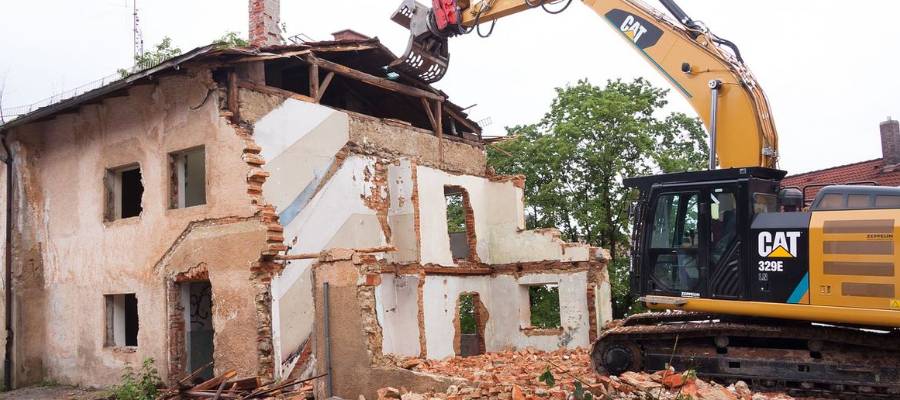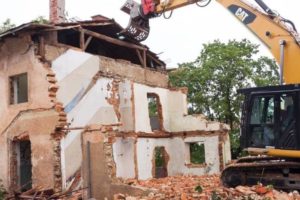Property is of the safest and best-performing investments over the last twenty years. In a report by Coulters Property, they reported that in 1999 the average house price was just £77,961, however by 2020 it has risen to a massive £244,513. That’s a 300% increase in just twenty years.
Over this period a lot of money was made in a variety of different ways. As an example, the Candy Brothers started their property empire with just a £6,000 loan and have managed to develop a property empire spanning the world worth billions. Making money in property is not easy, but with the right direction, it’s possible to make a good living from property.
Before we look at how to make money from property, let’s look at a few of the drawbacks of property as an investment.
Stamp Duty
The critical problem with property is that both the capital growth on the value of the property and any income you received while owning the property, is taxable. Firstly, when buying a property, you need to pay stamp duty on the property value. Stamp duty will cost more for a second property than a first, but the below is the guidelines.
Primary Residence
- £0 – 500K is 0%
- £500 to £925,000 is 5%
- £925,001 to £1,500,00 is 10%
- £1,500,001 and greater is 12%
Secondary Residence
- £0 – 500K is 3%
- £500 to £925,000 is 8%
- £925,001 to £1,500,00 is 13%
- £1,500,001 and greater is 15%
Capital Growth
If it’s your primary residence, you pay no tax on the capital growth. This is because you can claim Private Residence Relief on any profit subject to certain conditions having been met. If it’s your second property, you will not be able to benefit from this relief and therefore need to pay tax on any growth depending on your tax bracket.
As an example, if you have a second property and you earn £40,000 a year from your job, and you make £25,000 in profit from the sale of a property, you would pay 20% on the first £10,000 and 40% on the second £10,000 given the £50,000 thresholds for higher rate tax in 2020-21.
Rental Income
It’s not only on capital growth that you’ll have a potential tax liability. You could also end up paying tax on the rental income. In the same example as above, if you earn £40,000 a year from your day job and you make £15,000 in profit from your rental property, this would mean that you have a tax liability.
In the UK today, you’d have the first £12,500 tax-free, the next £12,501 – £50,000, you pay 20% an anything above £50,000, you’d pay 40% in tax. In our example, if you earn £40,000, have another £15,000 in rental income, you’d pay 20% on the first £10,000 and 40% on the outstanding £15,000.
How To Make Money From Property?
We have looked at a few things to be aware of before you start investing in property, but how do you go about making money from property. Below are six ways to make money.
Buy To Let
This is one of the most popular property investments in the UK today. Across the UK, landlords are taking advantage of cheap mortgages to buy up a property with the sole intention to rent them out to others. The idea here with a buy to let, you buy a property, usually a one or two-bedroom flat and rent it out. The rent covers the mortgage, and you make money on the difference between the rent and mortgage, and the capital growth of the property.
Buy-Renovate-and-Sell
The idea here, you buy a property for a low price in a good area that needs refurbishing, refurbish the property cheaply, but to a high standard, and then sell it for more money than you paid for it. Remember there is a cost to buy and sell, and if you make more than your allowances, you will end up paying capital gains tax.
The key to making money with this investment is to know your market area and what property prices are around the chosen property. The worst-case scenario, you buy a property, renovate it and then either cannot sell it or have to sell it for less than you purchased it. If you do your research correctly, learn the right tips and tricks to add value to a home, you can easily generate a serious profit quickly.
Short-Term Rental
Typically, with a buy to let rental, you’re renting a property for an extended period. Typical rental agreements are for one year, however they can be for longer. On the same token, they also can be much shorter, however this usually involves a slightly different investment model.
The idea behind a short-term rental is for you to buy a property in a holiday location and then rent it out on a short-term basis. The key advantage of this model is that potentially you can use your property for select weeks each year and if successful, you can get a much higher rate of return. That said, there are risks involved with this model. Typically holiday rentals are seasonal, and there is no guarantee that your property will be rented during this period.
Rent A Room
The idea here, you rent a room on a long term basis, in your primary residence. If you rent out rooms, you can claim rent-a-room relief on any income that you earn. The key advantage of this scheme is that you don’t have to pay tax on the first £3,750 (If jointly owned it’s – £7,500) of your rental income, while deducting any expenses for wear and tear.
Unused Driveway
If you live in a city centre, you could make use of your driveway by renting it out to commuters each week. Remember, a large majority of the workforce drives to work each day, and with parking prices getting increasingly expensive, there is an excellent opportunity to undercut the market and rent out your driveway.
Look at websites such as parkonmydrive.com or yourparkingspace.co.uk to find someone to rent your driveway.
Property Development
Property development comes in all shapes and sizes, however you must do your research before diving into the property development market. You need to work out what the costs are before you start developing the property as this will have a direct influence on your profit. The biggest problem with property development is running up costs so much that you cannot sell for a profit, or cannot sell at all.
• Big to Small – The idea here is that you buy a big house and convert the property in flats that are much more attractive to first-time buyers who are struggling to get on to the property market. To convert a property, you’ll need planning permission which is much easier to get approved if there are other large houses in the community that have already been converted.
• Build New – If you can buy a plot in the right location, get planning permission, you could make a fortune developing your property. As an example, if you had purchased a property in a Crossrail commuter location, you would have seen your property price rise substantially almost overnight.








